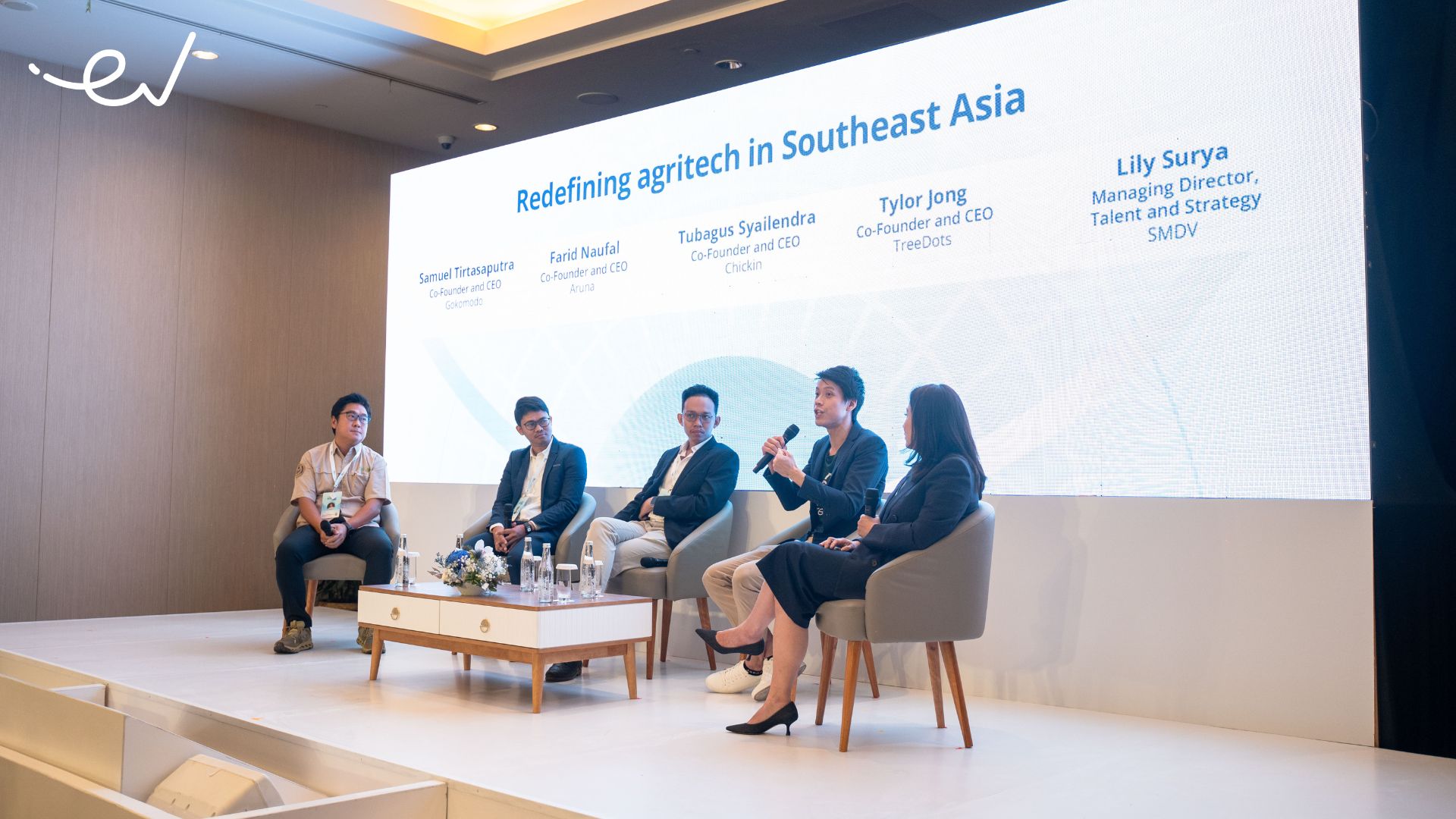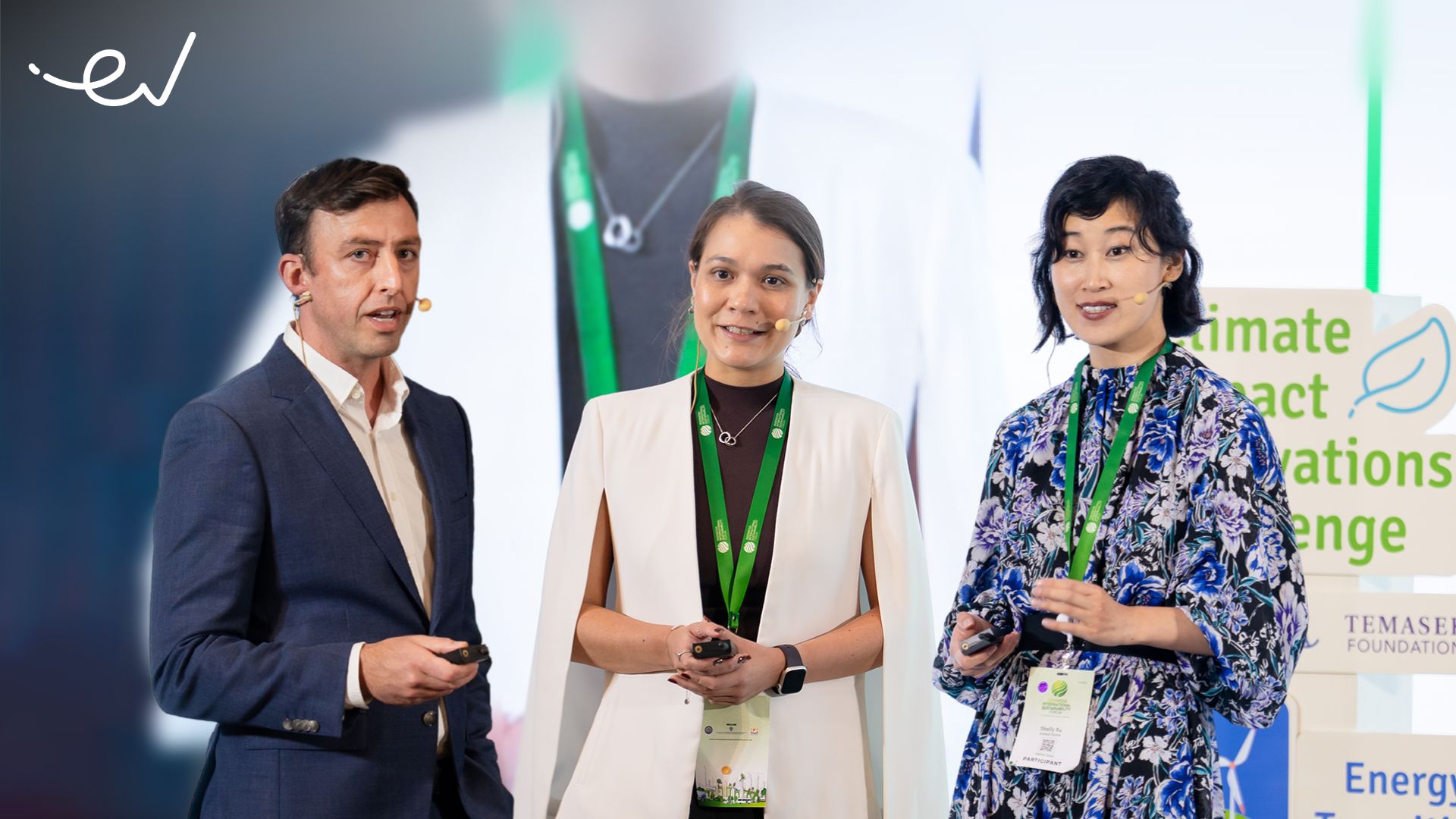The agritech sector in Southeast Asia is at the forefront of addressing some of the most pressing challenges facing global agriculture today. During East Ventures Summit 2024, we brought four of our portfolio to shed light on their insights, experiences, and strategies for overcoming the unique challenges they face in the agritech industry.
5 keys to redefining agritech in SEA
Here are the five key takeaways for the future of agricultural technology landscape and beyond, where all these efforts will strive to enhance food security and improve livelihoods of farmers and fishermen in the region.
1. Tackling food waste and inefficiency
Tylor Jong, Co-Founder and CEO of TreeDots shares the critical issue of food loss in Southeast Asia, where a staggering 90% of food waste occurs upstream in the supply chain. From all the waste, 66% is still edible, representing a significant inefficiency in the food system.
This is where TreeDots came by creating a market for surplus and imperfect food items that are typically discarded due to size, appearance, or consumer preferences. For example, chicken thigh meat is more popular in Southeast Asia than breast meat, leading to potential waste if not managed properly. By repurposing these food items, TreeDots has established operations in 13 cities across three countries: Indonesia, Singapore, and Malaysia, with 66% of their operation mainly in Indonesia.
TreeDots also trades surplus food across 14 countries, from Brazil to Europe and North Asia. Tylor highlighted the challenges of operating in this industry, describing it as a “black box” due to the fragmented nature of the market. He noted the difficulties in integrating people, products, and processes across different cultural contexts and the challenges of promoting Environmental, Social, and Governance (ESG) efforts in a region where transparency is not always prioritized. Despite these hurdles, TreeDots’ commitment to reducing food waste and improving the food supply chain remains steadfast, demonstrating the meaningful impact that agritech in Southeast Asia can have on global food security.
2. Bridging the gap for smallholder farmers
In Indonesia, a country with 33 million smallholder farmers, the difference between big corporate agricultural companies and smallholders is very clear and distinct, Samuel Tirtasaputra, Co-Founder and CEO of Gokomodo, highlighted this sector’s vast potential for growth.
While large corporations have achieved significant efficiencies, smallholder farmers continue to struggle with low productivity, which hampers the country’s ability to achieve its food security goals. Gokomodo aims to bridge this gap by connecting smallholders with the resources and technologies needed to boost their productivity.
Gokomodo’s approach integrates modern agritech solutions in Indonesia, such as GokoMart, which combines physical retail infrastructure with digital tools like retail apps and digital agronomy services. These services help farmers access better products and provide essential education on sustainable farming practices.
3. Enhance farm-to-table efficiency
Tubagus Syailendra, Co-Founder and CEO of Chickin, provided a compelling narrative of his journey from small-scale farming to launching a tech-driven platform that addresses inefficiencies in the poultry industry. Chickin’s mission is to help farmers navigate the challenges of market volatility, price fluctuations, and operational inefficiencies as emerging agritech startup in Indonesia.
The poultry industry in Indonesia is particularly dynamic, with chicken being a staple protein source for the country’s large population. Tubagus explained that the short harvest cycles in poultry farming are typically 30 to 40 days and can lead to “panic selling” among farmers, forcing them to sell at unfavorable prices.
Chickin aims to democratize the poultry industry by utilizing and integrating the Internet of Things (IoT) technology has resulted in significant cost savings for farmers, particularly in feed and electricity costs, which are major expenses in poultry farming.
By improving feed conversion ratios and reducing mortality rates, Chickin has helped over 60,000 farmers across 12,000 farm locations increase their profitability. This holistic approach not only improves the economic outcomes for farmers but also contributes to a more stable and sustainable poultry industry in Indonesia.
4. Empowering fishermen and expanding to global markets
As the world’s largest tuna fishing nation and a leading exporter of crab, Indonesia has tremendous potential in the maritime sector. However, the country’s fishing communities remain among the poorest, with 25% of Indonesia’s poorest population being fishers. Farid Naufal Aslam, Co-Founder and CEO of Aruna, recognized this disparity and set out to bridge the gap between Indonesia’s rich maritime resources and the economic well-being of its fishing communities.
Aruna’s approach involves building a direct connection between fishermen and global markets, supported by a robust cold chain infrastructure. The company’s “mini hubs” serve as essential cold chain facilities, ensuring that the fish caught by local fishermen can be preserved and distributed efficiently to international markets.
Aruna’s impact extends beyond improving fishermen’s incomes. The agritech company has also launched community development programs that provide training, rewards, and loyalty benefits to fishermen, fostering a sense of belonging and commitment to sustainable practices.
Recently, Aruna successfully entered the US and Canadian markets, partnering with established companies like North Coast Seafood to bring Indonesian seafood to North American consumers.
The company’s rapid achievement of the Marine Stewardship Council (MSC) sustainability certification further underscores its commitment to responsible and sustainable fishing practices. Aruna’s efforts not only enhance the livelihoods of fishermen but also position Indonesia as a key player in the global seafood market.
5. Improving people’s livelihood and income
Through this panel discussion, we also learned how these companies have directly improved the lives of farmers and fishermen. Tubagus Syailendra recounted how Chickin’s technology has doubled the profits of farmers by improving feed efficiency and reducing costs as agritech startups. This has had a profound impact on the economic stability of farming communities, allowing them to invest in their future and improve their standard of living.
Similarly, Samuel Tirtasaputra explained that Gokomodo’s educational initiatives not only help farmers increase their productivity but also promote sustainable practices that benefit the environment. By training farmers in soil preservation and the benefits of no-burning policies, Gokomodo is helping to create a more sustainable and resilient agricultural sector in Indonesia.
The company’s network of agents, who are often village leaders or experienced farmers, plays a crucial role in disseminating this knowledge and promoting climate sustainability among smallholder farmers.
In the maritime and fishery side, Farid Naufal highlighted the significant impact Aruna has had on fishermen’s incomes through its community development programs and direct market access. By providing fishermen with better tools, training, and incentives, Aruna is helping to uplift one of Indonesia’s most marginalized communities, ensuring that they benefit from the country’s abundant maritime resources.
Watch the full video of the panel discussion here:
If you are a startup founder building in the agritech sector, send us your pitch here.







